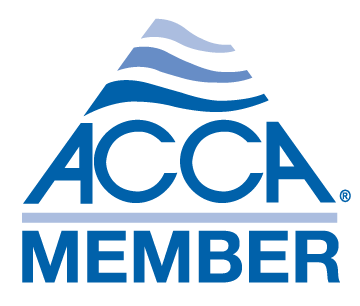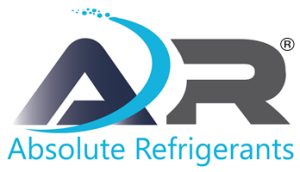FAQ About Absolute Refrigerants
Refrigerants are hazardous products that can legally only be shipped via ground (no air transport) due to DOT regulations. We use UPS for ground shipping from our warehouse in Arizona and have seen many times packages show up sooner and sometimes take longer depending on the weather, holidays, or human error.
Our customers are happy with the UPS service and how they can track their packages. Here is an example of a prior customer’s shipment, for which you will receive a tracking number to see information or updates similar to this:
Our “Ship It Today” Option
Orders placed before 1:00 PM MST (Monday-Friday) with this option get same-day processing, potentially reducing delivery time by 1 business day. If you require the fastest arrival time, this option is for you. Orders with Ship It Today are processed before all other orders.
Key Points
* Tracking updates may vary depending on routing and when the UPS service scans are updated.
* We maintain an excellent delivery record for over 3 years and go out of our way to ensure customer satisfaction.
Any individual or business can purchase refrigerant from us. However, it’s important to know that only licensed HVAC professionals are the only legally permitted people to install or add refrigerant to an air conditioning system. When you purchase from us, you agree that the person handling the refrigerant is a licensed HVAC technician.
No, you do not need a license to purchase refrigerant. However, the person who actually installs or adds the refrigerant to your AC system must be a licensed HVAC professional, as required by federal regulations.
These regulations are designed to protect environmental safety and ensure proper handling of potentially harmful chemical substances. Licensed HVAC technicians are trained in safe installation, proper measurement, and environmental compliance.
Freon is a brand name for a group of synthetic refrigerants, specifically chlorofluorocarbons (CFCs) and hydrochlorofluorocarbons (HCFCs), initially developed by DuPont (now part of Chemours) in the 1930s.
These compounds are made up of carbon, chlorine, fluorine, and sometimes hydrogen, and they were widely used in refrigeration, air conditioning, and as propellants in aerosol cans due to their stability, low toxicity, and effective heat-transfer properties.
- Weak Cooling: If the air coming from your vents isn’t as cold as it used to be—or feels more like a weak breeze than a blast of cool air—low refrigerant could be the culprit. The system relies on refrigerant to absorb and transfer heat, so less of it means less cooling power.
- Longer Running Times: If your AC runs constantly but struggles to reach the set temperature on your thermostat, it might not have enough refrigerant to efficiently remove heat.
- Ice on the Evaporator Coils: Low refrigerant can cause the coils to get too cold, leading to condensation freezing on them. Check the indoor unit (often in a basement, attic, or closet)—if you see frost or ice buildup, it’s a red flag.
- Hissing or Bubbling Noises: A refrigerant leak might make audible sounds. Hissing could mean gas escaping from a small hole, while bubbling might indicate a larger breach. Listen near the indoor or outdoor unit.
- Higher Electric Bills: If your AC is working harder to compensate for low refrigerant, it’ll use more energy, spiking your costs without delivering better results.
-
Warm Air from Vents: Put your hand near a vent. If the air feels lukewarm or barely cool (especially when it’s set to a low temp), the refrigerant charge might be off.
- R-410A (Puron): This is the standard for most residential AC units made after 2010. It typically costs $50 to $100 per pound when installed by a technician. A typical 2- to 3-ton home AC needs 6 to 12 pounds, so a full recharge might run $300 to $1,200, not including labor. Note that R-410A is being phased out starting January 1, 2025, for new systems under EPA rules, but it’s still available for existing units. Prices might creep up as production drops over the next decade.
- R-22 (Freon): Used in older systems (pre-2010), R-22 is much pricier because it’s been phased out since 2020—no new production or imports allowed in the U.S. It now costs $100 to $250 per pound, sometimes higher due to scarcity. For a 2- to 3-ton unit needing 6 to 12 pounds, you’re looking at $600 to $3,000 or more. Supply is dwindling, so costs fluctuate wildly based on what’s left in stock.
- Newer Refrigerants (R-32, R-454B): Starting in 2025, new AC systems will use these lower-GWP (Global Warming Potential) options. Pricing isn’t fully standardized yet, but early estimates suggest $90 to $150 per pound, similar to or slightly above R-410A. These aren’t relevant for recharging older systems, though—they’re for new units only.
Save Money with Absolute Refrigerants
Absolute Refrigerants offers you a way to save money on your HVAC system by offering different refrigerants and sizes or pounds of refrigerant.
We have been in the refrigerant business for many years and have watched the industry change with technological advancements and new laws. We have always been able to provide our customers with the best quality products at an affordable cost, we understand that not everyone wants to pay high prices for their refrigerant.
That is why we are offering bulk quantities at very low costs. This will allow you to save money while still using a top-quality product that will keep your system running efficiently.
If you would like more information on how Absolute Refrigerant can help you save money, please contact us today!
Customer Reviews



Pay Securely with Paypal Buyer Protection
$0 LIABILITY
180 DAY PAYPAL BUYER PROTECTION COVERAGE
RESOLUTION SUPPORT




